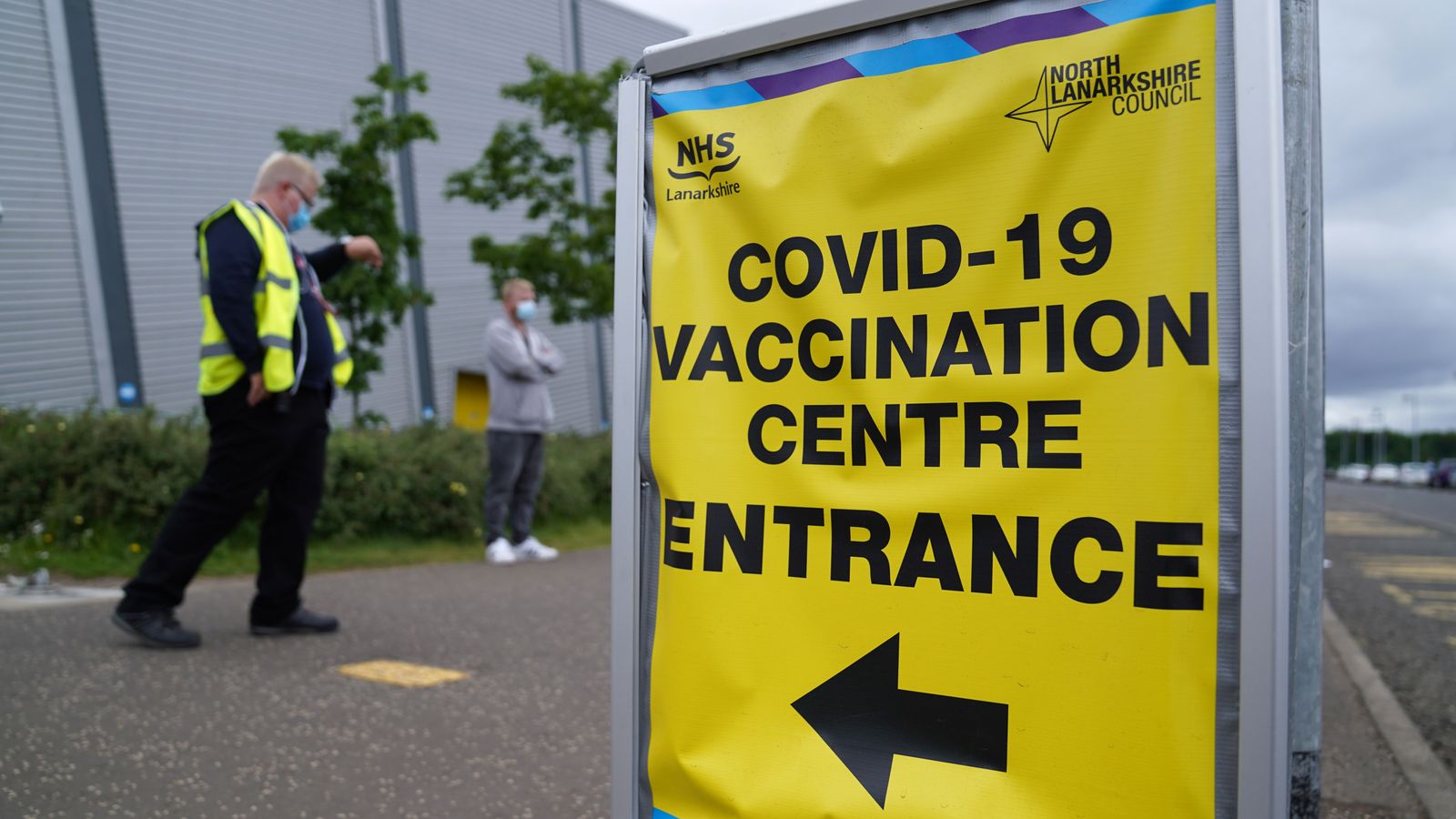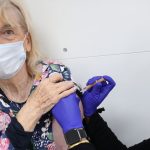The UK has reported 16,703 new COVID-19 cases and another 21 coronavirus-related deaths in the latest 24-hour period, according to government data.
The figures compare with 16,135 infections and 19 deaths announced yesterday, and 11,007 cases and 19 deaths this time last week.
Meanwhile, another 207,647 people received their first dose of a COVID vaccine yesterday, while 167,988 got a second.
This means a total of 43,656,327 first jabs have been administered in the UK, while 31,908,103 people have been fully vaccinated.
Live COVID updates from the UK and around the world
It comes as government minister George Eustice told Sky News there will be no “legal compulsion” to wear a face mask once England’s coronavirus restrictions are lifted.
The deadline for the next easing of restrictions was moved back from 21 June to 19 July, following the rise in cases of the Delta variant, first detected in India.
Prime Minister Boris Johnson said this month-long delay would allow for more people to be offered the COVID vaccine.
He has indicated that there is a “real opportunity” to “open up travel through the jab”.
An update to the government’s travel guidance is expected today, with sources saying Malta and the Balearic Islands – including Ibiza, Mallorca, Minorca and Formentera – could be added to the quarantine-free green list.
Earlier on Thursday, Public Health England said that cases of COVID continue to rise in all parts of the country.
The North West has the highest rate, with 238.9 cases per 100,000 people in the seven days to 20 June.
This is the highest rate in the region since the week ending 31 January.
The next highest figure was found in the North East, with 173.6 cases per 100,000 people.
Case rates continue to be highest in the younger parts of the population, while the elder generations – who were offered a vaccine earlier – remain at a lower level.
Subscribe to the Daily podcast on Apple Podcasts, Google Podcasts, Spotify, Spreaker
In people aged 20 to 29, there were 267.9 cases per 100,000 in the week to 20 June, up from 200.4 the week before, while those in the 10 to 19 age bracket saw their rate increase from 146.1 to 217.4.
For people aged 60 and over, the rate is 17 people per 100,000, up from 14,8.






















